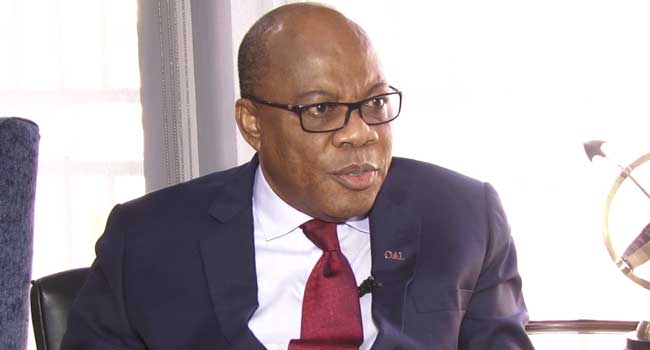
Olisa Agbakoba, the senior advocate of Nigeria (SAN), has reiterated his call for decentralization of power, arguing that democracy will remain fragile without the transfer of power and resources to local governments and states.
Agbakoba made the call at a press conference in Lagos, Nigeria, where he presented a policy document titled “Devolution is the Solution – Foundational Reform Agenda for Transformation” (Francoise version).
Before the 2027 presidential elections, he referred to the blueprint as a blueprint for restructuring Nigeria’s political and economic systems.
Agbakoba criticized what he termed Nigeria’s “fatal illusion” of federalism, noting that the Federal Government is in charge of 97% of all revenues while the majority of states rely on bailouts.
Without federal assistance, “five out of thirty-six states cannot pay their salaries.” He claimed that there are more than 76 local governments and 36 states that serve as distribution centers for federal aid and are not development engines.
Read more about Western Democracy in Nigeria: Agbakoba and Defections Won’t Help.
He warned that because of this extreme centralization, millions of Nigerians are trapped in an unproductive informal economy, which only allows for three or four percent of GDP growth as opposed to the ten to twelve percent needed to escape poverty.
Political rather than economic
Agbakoba praised President Tinubu’s economic reforms, including those aimed at reducing fuel subsidies and liberalizing foreign exchange, but argued that they needed political reform to succeed.
“Political is the root of the problem,” not economic. Because you can’t patch a cracked foundation, he claimed, twenty-five years of constitutional amendments failed.
To formally impose federalism through a significant devolution of powers, the senior lawyer emphasized that Nigeria needs a new constitution rather than additional amendments.
Agbakoba argued that states should retain 60% of the nation’s internal revenue while maintaining control over their resources, including policing, electricity, and solid minerals.
He further stated that local governments must be granted constitutional authority in terms of community development, including education, healthcare, water, sanitation, and health.
The senior lawyer argued that the federal government should concentrate on foreign affairs, including currency, defense, immigration, and defense.
He claimed that a multi-centred economy with more people-centric governance would emerge from a centralized redistribution system.
Untapped Wealth , pp ,
Agbakoba noted that poor legislation and regulatory failures continue to stymie Nigeria’s 25 to 35 trillion-percent untapped revenue potential.
He revealed that illegal fishing, untaxed oil rigs, inefficient ports, and untaxed oil rigs cause annual losses of 11 trillion.
Additionally, the SAN claimed that unexploited resources like lithium, cobalt, and rare earths, valued at up to 45 trillion, are present. Agbakoba argued that the implementation of these reforms would set Nigeria on its way to a development boom.
“If these reforms are put into place, Nigeria could have $500 trillion in its budgets.” In terms of infrastructure, education, and healthcare, we might rival Asian economies.
He predicted that a strong middle class would emerge, agriculture would feed Africa, industries would create millions of jobs, and there would be global competition for technology hubs, he said.
If Nigerians reject the current system, which benefits a few while impoverishing millions, then this transformation, he claimed, could take place in five years with solid foundations by 2030.
According to Agbakoba, political and economic restructuring is necessary to safeguard Nigeria’s democracy.
Source: Channels TV

Leave a Reply